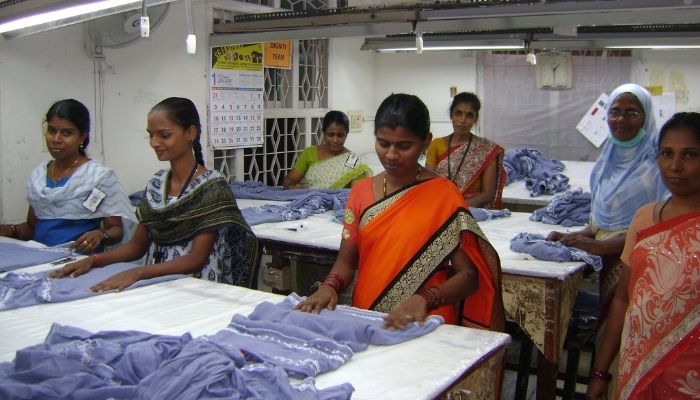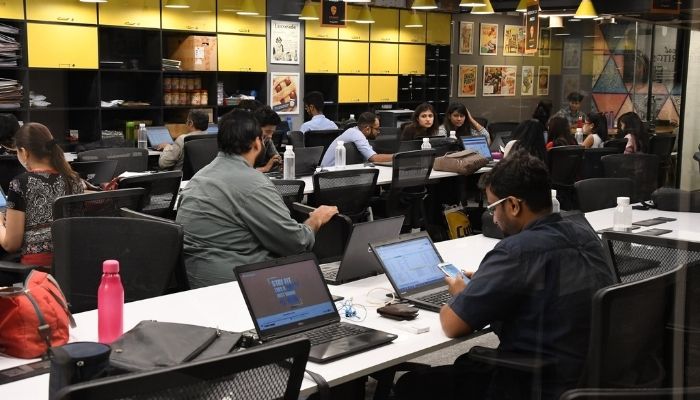POSH Roundtable Highlights: Need For Aware Leaders, Accessible HR Mechanisms, And More

Written by: Saloni Borse
Even though it has been seven years since POSH came into effect, there remains quite a bit of ground to cover when it comes to companies making sense of the POSH Act and taking compliance seriously.
In pursuit of Ungender’s mission and ambition to ensure that all workplaces are safe, inclusive and fair, we organised our first ever – POSH Roundtable.
Founder and CEO, Ungender and Conduct, Pallavi Pareek discussed the many challenges to POSH Compliance with Jyothsana Vasudevan, Head – Employee and Industrial Relations, Shell (India), Kanishka Mallick, GM, HR, Times Internet, Asha Pillai, Chairperson CII Indian Women Network – Gujarat and Preeti Bose, HR, Talent & Leadership Development and Organisation Transformation.
POSH Awareness
How has POSH law changed companies since 2013? How did companies react to the law when it was first introduced? Also, what were your individual thoughts on this.
JV: From an organisation’s point-of-view it was considered as a license to operate. It was seen as a need to conform to the fundamental rights of women as enshrined in the POSH Act. Corporates should not hesitate in any form or manner to discuss topics like sexual harassment or even bullying. The law should be followed in letter and in spirit.
There is a difference in the approach taken by the organisations with regards to the POSH law. Some organisations have it ingrained in their DNA and compliance with these laws are taken seriously. These companies ensure that it is institutionalized through culture, structural interventions and through capability building.


KM: It is a collective effort. First thing is to understand and retrospect on the fact that if change is to happen it should happen first in oneself. First step is to realise that you can be one of the reasons why change is not happening. To comply with POSH, the typical excuse that companies had was that they didn’t have enough women to form an IC.
Awareness, education and training of IC members and their independence with regards to the complainant and the accused is very important. Companies have come a long way for sure, but they are still infants on this journey.
Different POSH Mechanisms For Different Sections Of The Workforce?
Companies are still struggling to find the best way to educate their workforce about POSH. What are the different facets to this challenge and what’s the best formula to address it?
AP: I now lead an Internal Committee and have also been working for a women’s forum where POSH is discussed and aims to educate and sensitize issues relating to sexual harassment. As for the initial stages of the introduction of the POSH Act and the awareness in the organisation, women resonated with it almost immediately.
The journey, however, lies is understanding the nuances of the sensitization. The first point would be – are women allowed to speak, do they have an opportunity to speak up and do they have boundaries when speaking up? Are these boundaries legal or are they socio-cultural and context based? Are these boundaries even real? These are the sort of dilemmas that one faces.
But at companies like Shell, the conversations and sessions were much more nuanced. Consent and consensual relationships and post facto trauma in relation to harassment were spoken about. The biggest question is how to deliver the message to the community so that they feel safe to open up. That’s the first challenge.
The second one is with regards to contractual staff. They are almost invisible in nature and it is the duty of the company to ensure that they feel safe as well. They should also have a complaints committee. They should also be heard and feel safe to speak up. This is beyond the law and it’s no longer about being legally compliant but also about being humane.



The next point with regards to the law is how to make it more inclusive and how to go beyond it. How to include the trans community and how to make it equally applicable to men as well. There are several nuances to that as well. Law needs to be broader as it is far too narrow.
SK: Yes, it is very important to know how to get the message out there. It is not enough to just provide a platform for women to speak up but also to give them the confidence to do so. And yes, it is needed to go beyond the binary now. The definition of a “woman” has expanded, and it must include transwomen. A very important question is also how we are looking at awareness sessions and learning programs for the contract staff.
Learning To Behave Better At Work
Is it a challenge to tell people how to behave in a workplace? How should it be put across so that it does not come across as a lecture? How does one modify the language to ensure that?
KM: Fall back on the basics. We have to build capsules of such sensitivity into various other training or orientation programs and people management workshops. Even a decade ago in Bharati Enterprises, sensitization and corporate behavior was discussed. Make such topics comfortable for employees to process. Frequent dosages at frequent points of time is needed to handle this.
JV: Tried and tested methods are:
1. Tone from the top and positive role-modelling from the leaders of the organisation – “What’s important for my boss is important for me.” Make the workers emulate the leaders at the top.
2. Proof of the pudding. Demonstrable evidence should be given that things happen, and action will be taken. Publish anonymously the grievances and perpetrations and a range of consequences that has taken place over a period of time.
How to ensure communication about POSH reaches everyone?
AP: Role-modelling for leaders is applicable to both men and women leaders. Male leaders need to lead by example when it comes to a model code of conduct and women to also show that they can call out inappropriate behaviour.
Cognitive dissonance is something that takes place a lot when you have a ‘real self’ and a ‘work self’ and it leads to immense stress. When an organisation reaches 30% diversity, women automatically do not need to conform in the workplace all the time and can be their ‘real self’. Until then, role modelling is important and being able to talk to leaders is important.



Secondly, women’s forum is a powerful and safe space where women can share their issues, especially when leaders share their experiences – it helps. As a result, people start opening up and then we can figure how to help them. Sends a message back to leadership that senior women are sitting in women’s forums.
Thirdly, some men now say that they do not want to talk to women because they are afraid. It is up to the individuals to draw the boundaries on who are colleagues and who are friends. Further, formality in such situations help.
Best Way To File A Report
How has the experience been with respect to the different aspects of instilling faith? Now that your employees know what to do in case of sexual harassment and how to file a complaint, how do you ensure accessibility? What are the mediums of speaking up?
JV: It is always daunting for a person to say that they want to file a complaint. Plus, filling a form and writing is even more intimidating. It is better to proactively offer – “we will record this for you and verify this that this is the correct representation of the incident or situation.” This is better than making someone write an essay. Make it easy for the complainants.
Global helplines are important or reaching the HR, line leaders, senior confidante, mentor or leader, or even women’s network representative, etc. Many a times, women don’t wish to file complaints and just want to have a ‘chat’.
KM: Create forums and platforms to refresh information on who to reach out to, how to reach out to, formal, informal, verbal, non-verbal ways to communicate and share incidents. My organisation has largely had the new-age employee base, so digital platforms work.
Chat bots reach out to newer employees every 15 days and thereafter every month and after a year of tenure, every quarter. Along with this, any employee can reach out any time open or anonymous. The response percentage has increased from 47% to 89% within the last two years.
There are other typically HR based programs like bi-weekly assimilation programs, monthly meets, quarterly townhalls, etc. Another thing, we’re trying to create are employee handbooks. Making snippets, comic strips and sending it to WhatsApp groups to share our agenda in an informal way. Showing unacceptable language and how to not speak, etc. – things of that sort.



AP: If teams are not comfortable doing video calls, video calls are not done. Do not get into people’s personal times and non-working hours. This is important to create spaces and boundaries for employees. It allows them to speak up when their personal space and personal time is being encroached upon.
In the current situation, it is important to let female employees know that there are a number of informal channels to talk if they wish to do so. Also, a buddy system helps.
Check this space to watch the complete interview on Ungender’s YouTube channel soon.
Ungender Insights is the product of our learning from advisory work at Ungender. Our team specializes in advising workplaces on workplace diversity and inclusion. Write to us at contact@ungender.in to understand how we can partner with your organization to build a more inclusive workplace.
Read our insights about diversity, legal updates and industry knowledge on workplace inclusion at Ungender Insights. Visit our Blog.
Sign up to stay up-to-date with our free e-mail newsletter.
The above insights are a product of our learning from our advisory work at Ungender. Our Team specialises in advising workplaces on gender centric laws.
or email us at contact@ungender.in




